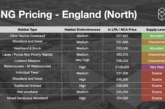With much in the press about biodiversity net gain, Sally Hayns, CEO of the Chartered Institute of Ecology and Environmental Management, looks at the impact on housebuilders and the important role they can play in preserving the natural environment.
From an ecologist’s perspective, the increasing visibility and emphasis given to the natural environment in national planning policy is a good thing. But how good is it for housebuilders and other developers?
I am not suggesting that housebuilders don’t value the environment – far from it, but it is yet another potential constraint to be aware of and make decisions about in a fast-changing planning policy world. Biodiversity Net Gain, new licensing policies for protected species, blue and green infrastructure plans – these are all relatively new concepts that housebuilders and their agents need to get their heads around. Ecological consultants should be there to help you, but do you use them, and do you trust them?
In the bad old days, ecological consultants were seen as ‘the enemy’ by pretty much everyone involved in the development business. Viewed with suspicion by developers who expected that they were; a) going to cause problems by finding protected habitats and species on sites that would then be time-consuming and costly to deal with, and; b) going to create a lot more work for themselves by recommending more survey and mitigation work that may or may not be necessary.
Helping the process
Hopefully time and attitudes have changed, or at least are on the way to changing. There is now wider recognition that good ecological consultants help the development process, both at the design stage and at the planning decision stage. Good ecological consultants can show stakeholders how the natural environment is being protected (and possibly even enhanced) as part of development. They can also give sound professional advice in a clear, timely and consistent way. But it is also true that not all ecological consultants are good at what they do.
Why is that? Well firstly, it is an unregulated profession. You don’t need to have any qualifications to set up as an ecological consultant and give advice to developers and planning authorities.
Those that join CIEEM voluntarily submit to having their knowledge, experience and competence tested and to being bound by a Code of Professional Conduct, so that if things go wrong, their clients can do something about it. Those that are prepared to commit to corporately doing things in the right way are then included in our Directory of Registered Practices.
Secondly, not all ecological consultants understand the planning, development and construction processes. It is not formally taught, so ecologists ‘acquire’ knowledge along the way. That’s not good enough. CIEEM has recently embarked on a project to train ecological consultants who are at an early stage in their careers in how development works, the significance of the decisions and recommendations they make, and how to do it in an objective, evidence-based, timely and constructive way.
Thirdly, many local authorities do not have access to in-house ecological expertise. This can make local planning authorities risk averse when it comes to planning decisions or lead them to make poor development decisions which then lead to challenges from other parties. With savage spending cuts impacting heavily on planning departments, this is unlikely to change in the foreseeable future. Which is why CIEEM is investing in supporting local planning authorities, by helping to train planners in biodiversity issues.
But what about help for housebuilders and other developers? We need to find ways to help you get to grips with the implications of emerging planning policy and manage your project impacts on nature in time and cost-efficient ways. To do that we need to have honest conversations with you and your representative bodies. We need to understand each other better and we need to find ways to work together for a common goal – good development in the right places.









